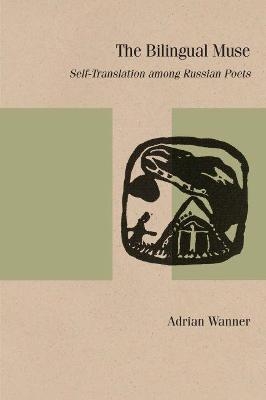
The Bilingual Muse
Self-Translation among Russian Poets
Seiten
2024
Northwestern University Press (Verlag)
978-0-8101-4124-7 (ISBN)
Northwestern University Press (Verlag)
978-0-8101-4124-7 (ISBN)
Analyses the work of seven Russian poets who translated their own poems into English, French, German, or Italian. Investigating the parallel versions of self-translated poetic texts, Adrian Wanner considers how verbal creativity functions in different languages, the conundrum of translation, and the vagaries of bilingual identities.
The Bilingual Muse analyzes the work of seven Russian poets who translated their own poems into English, French, German, or Italian. Investigating the parallel versions of self-translated poetic texts by Vladimir Nabokov, Joseph Brodsky, Andrey Gritsman, Katia Kapovich, Marina Tsvetaeva, Wassily Kandinsky, and Elizaveta Kul’man, Adrian Wanner considers how verbal creativity functions in different languages, the conundrum of translation, and the vagaries of bilingual identities.
Wanner argues that the perceived marginality of self-translation stems from a romantic privileging of the mother tongue and the original text. The unprecedented recent dispersion of Russian speakers over three continents has led to the emergence of a new generation of diasporic Russians who provide a more receptive milieu for multilingual creativity. The book will be of interest to scholars in Russian literature, comparative literature, applied linguistics, translation studies, and the rapidly developing field of self-translation studies.
The Bilingual Muse analyzes the work of seven Russian poets who translated their own poems into English, French, German, or Italian. Investigating the parallel versions of self-translated poetic texts by Vladimir Nabokov, Joseph Brodsky, Andrey Gritsman, Katia Kapovich, Marina Tsvetaeva, Wassily Kandinsky, and Elizaveta Kul’man, Adrian Wanner considers how verbal creativity functions in different languages, the conundrum of translation, and the vagaries of bilingual identities.
Wanner argues that the perceived marginality of self-translation stems from a romantic privileging of the mother tongue and the original text. The unprecedented recent dispersion of Russian speakers over three continents has led to the emergence of a new generation of diasporic Russians who provide a more receptive milieu for multilingual creativity. The book will be of interest to scholars in Russian literature, comparative literature, applied linguistics, translation studies, and the rapidly developing field of self-translation studies.
ADRIAN WANNER is the Liberal Arts Professor of Russian and Comparative Literature at Penn State University. He is the author of Russian Minimalism: From the Prose Poem to the Anti-Story and Out of Russia: Fictions of a New Translingual Diaspora, both published by Northwestern University Press.
Introduction: “The Trick of Doubling Oneself”
1. Elizaveta Kul’man: The Most Polyglot of Russian Poets
2. Wassily Kandinsky’s Trilingual Poetry
3. Marina Tsvetaeva’s Self-Translation into French
4. Vladimir Nabokov’s Dilemma of Self-Translation
5. Joseph Brodsky in English
6. Self-Translation among Contemporary Russian-American Poets
Conclusion
Notes
Bibliography
| Erscheinungsdatum | 31.01.2020 |
|---|---|
| Reihe/Serie | Studies in Russian Literature and Theory |
| Verlagsort | Evanston |
| Sprache | englisch |
| Maße | 153 x 230 mm |
| Gewicht | 633 g |
| Themenwelt | Geisteswissenschaften ► Sprach- / Literaturwissenschaft ► Anglistik / Amerikanistik |
| Geisteswissenschaften ► Sprach- / Literaturwissenschaft ► Literaturwissenschaft | |
| ISBN-10 | 0-8101-4124-8 / 0810141248 |
| ISBN-13 | 978-0-8101-4124-7 / 9780810141247 |
| Zustand | Neuware |
| Haben Sie eine Frage zum Produkt? |
Mehr entdecken
aus dem Bereich
aus dem Bereich
Poetik eines sozialen Urteils
Buch | Hardcover (2023)
De Gruyter (Verlag)
59,95 €
Buch | Softcover (2024)
belleville (Verlag)
20,00 €


